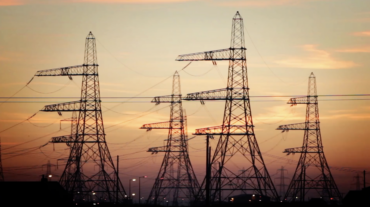-
 Books, Authors, Art and MusicFish, Birds and AnimalsHistory and CultureIndigenous CommunitiesIndustry, Energy, Economic DevelopmentLatest NewsMinnesotaNewsScience, Technology, Research
Books, Authors, Art and MusicFish, Birds and AnimalsHistory and CultureIndigenous CommunitiesIndustry, Energy, Economic DevelopmentLatest NewsMinnesotaNewsScience, Technology, ResearchA different perspective on the fur trade
-Carl Gawboy, a Minnesota artist and Ojibwe scholar, explores the rich history of the fur trade in his book “Fur Trade Nation: An Ojibwe’s Graphic History.”
00 -
 Charles Stewart Mott Foundation PartnershipCollaborationForests and PlantsInvasive SpeciesLatest NewsNewsPolitics, Policy, Environmental JusticeRecreation and TourismScience, Technology, ResearchTourism
Charles Stewart Mott Foundation PartnershipCollaborationForests and PlantsInvasive SpeciesLatest NewsNewsPolitics, Policy, Environmental JusticeRecreation and TourismScience, Technology, ResearchTourismTrump firings hit Great Lakes sea lamprey program, Michigan forestry workers
-Fish and wildlife officials tasked with holding back a species that would otherwise decimate the Great Lakes fishery were among those caught up in a mass purge of federal workers.
-
 Feature HomepageLatest NewsNewsPolitics, Policy, Environmental JusticeU.S. and Canadian Federal GovernmentsWater Quality and Restoration Efforts
Feature HomepageLatest NewsNewsPolitics, Policy, Environmental JusticeU.S. and Canadian Federal GovernmentsWater Quality and Restoration EffortsWill JD Vance save the Great Lakes from Trump?
-The vice president once pushed for restoration funding. Advocates hope he hasn’t forgotten.
-
 Energy, Clean Energy, Ethanol and FrackingIndustry, Energy, Economic DevelopmentLake MichiganLatest NewsMichiganNews
Energy, Clean Energy, Ethanol and FrackingIndustry, Energy, Economic DevelopmentLake MichiganLatest NewsMichiganNewsMichigan Residents Push for an Environmental Impact Statement Before Restarting the Palisades Nuclear Plant
-An assessment found that reopening the plant would have “no significant impact” on the local environment, but locals want a more thorough review.
-

Southwest Detroit homes flooded, families displaced by water main rupture
-A 54-inch water main rupture flooded streets and several hundred homes in Southwest Detroit, displacing families and causing significant damage to homes and infrastructure.
-
 ChicagoEnergy News RoundupFeature HomepageIllinoisIndustry, Energy, Economic DevelopmentLatest NewsNewsOhio
ChicagoEnergy News RoundupFeature HomepageIllinoisIndustry, Energy, Economic DevelopmentLatest NewsNewsOhioFrom Madigan’s Conviction to ComEd’s EV Rebate Program: How Illinois is Shaping Its Energy Future
-More energy news as federal funding for climate science faces cuts under Trump, while Ohio wrestles with “a supply and demand imbalance” on the electric grid.
-

After water main break, officials say homes in Detroit’s Southwest will get repairs covered
-Residents of Detroit’s Southwest neighborhood are facing flooded streets, basements and possibly lengthy stays in temporary shelters after a 54-inch water transmission main broke.
-
 Drinking WaterFeature HomepageGroundwater ContaminationIndustry, Energy, Economic DevelopmentLatest NewsMichiganNewsPFASPolitics, Policy, Environmental JusticeWater Quality and Restoration Efforts
Drinking WaterFeature HomepageGroundwater ContaminationIndustry, Energy, Economic DevelopmentLatest NewsMichiganNewsPFASPolitics, Policy, Environmental JusticeWater Quality and Restoration EffortsVeteran Great Lakes advocate cautions on prioritizing economic development over protecting the environment
-Michigan advocate Laura Rubin reacts to the EPA’s five “pillars” plan that includes making the United States the “Artificial Intelligence Capital of the World.”
-
 Beaches, Boating, Paddle Sports and SailingCollaborationLatest NewsMinnesotaNewsRecreation and TourismRecreational Hunting and FishingTourism
Beaches, Boating, Paddle Sports and SailingCollaborationLatest NewsMinnesotaNewsRecreation and TourismRecreational Hunting and FishingTourismPoints North: Back to the Boundary Waters
-Erik Grams has been taking trips to the Boundary Waters in Minnesota for over 30 years. It’s his favorite place in the world. But last year, during a fishing trip, there was a fatal accident that left Erik wrestling with his feelings about the place he loved.


